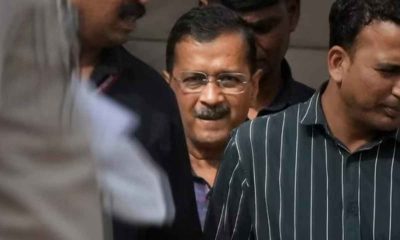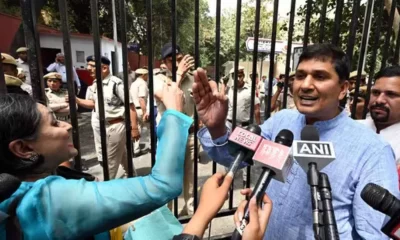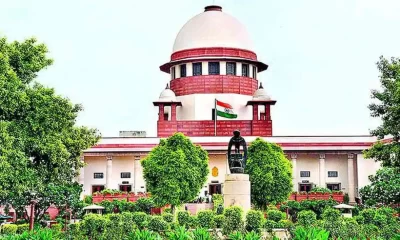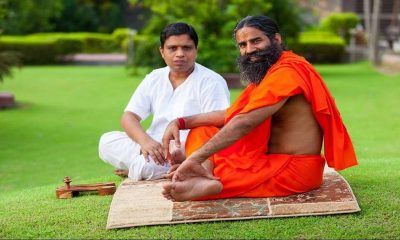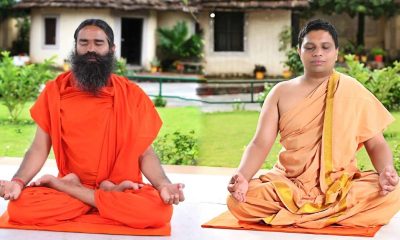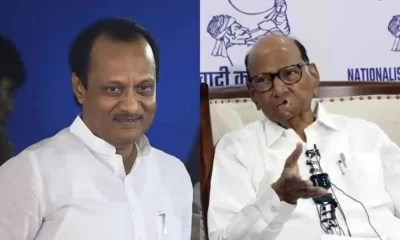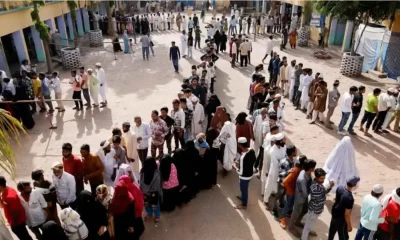India News
SC leaves it to Parliament to frame law to bar criminal politicians from contesting polls
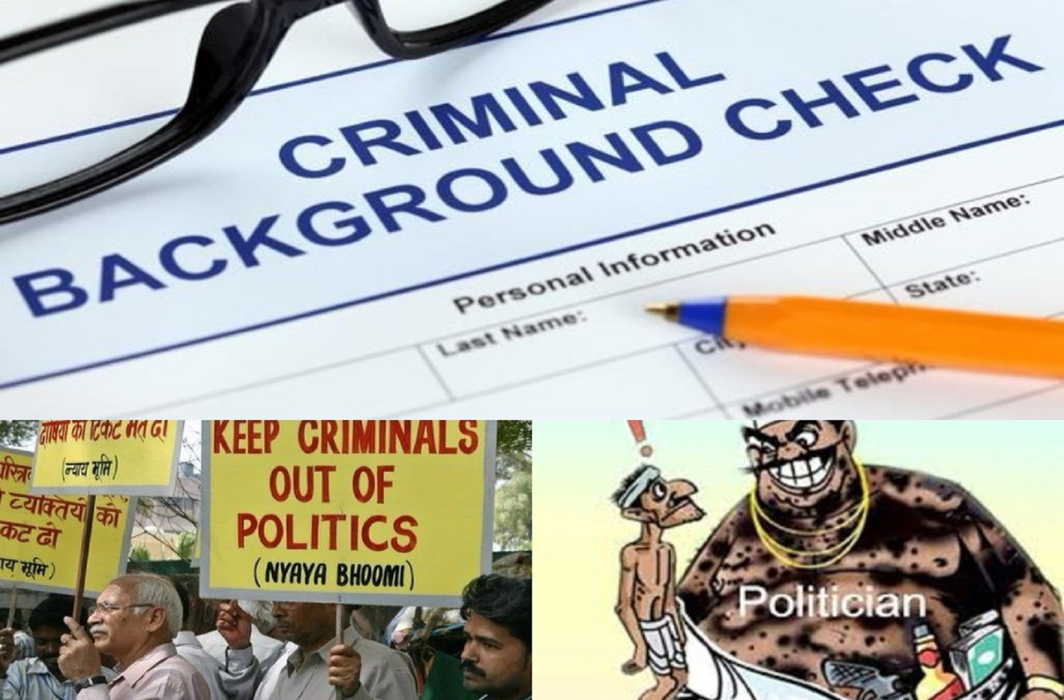
The Supreme Court on Tuesday ruled that it cannot disqualify candidates with criminal cases against them from contesting elections and urged the Parliament to enact a law to ensure that people with serious criminal charges do not enter public life.
A five-judge Constitution bench, headed by Chief Justice of India Dipak Misra and also comprising Justices RF Nariman, AM Khanwilkar, DY Chandrachud and Indu Malhotra, said the time had come for a law against criminalisation of politics. The “nation eagerly waits for such legislation”.
The apex court said that the country was facing an increasing trend of criminalisation of politics and that it strikes at the very root of democracy.
The SC bench, however, issues directives to check criminalisation.
It directed that all candidates must state, in bold, details of criminal cases pending against them in their election affidavit. Candidates must also share this information with their respective political parties, which will in turn upload this on their websites.
Parties should also issue a declaration on the criminal antecedents of their candidates in a widely circulated publication, said the SC bench. It said this should be done at least three times after filing of nomination papers.
To facilitate this transparency by parties, candidates should first give complete information about their criminal past or pending cases to the parties on whose ticket they intend to contest elections, stated the judgment.
This is to ensure that the ordinary voter can have an “informed choice” about who (s)he has to vote for in a country “tired of money and muscle power,” said the court.
The direction to compel political parties to go public about their “criminal” candidates is a step to “foster and nurture an informed citizenry” and to protect the “culture and purity in politics.”
The court said criminal politicians are nothing but a liability to this country. Their presence in power strikes at the roots of democracy. Criminalisation of politics and corruption, especially at the entry level of elections, has become a national and economic terror. It is a disease which is self-destructive and becoming immune to antibiotics, opined the court.
“There is a steady increase in the level of criminality creeping into politics,” the court observed. Parties need to come clean about the criminal elements within their apparatus.
Chief Justice Misra, who authored the verdict for the Bench, directed “each contesting candidate,” whether he or she belongs to a party or not, to fill up all the required information in the forms to be submitted to the Election Commission of India before an election.
The Bench, however, made it clear that the Supreme Court cannot legislate for Parliament and add a disqualification that candidates charged with heinous crimes should be banned from contesting elections.
The chief justice added that the court was “not in a position to add disqualification of candidates on filing of chargesheet in criminal cases.”
The Court urged Parliament to consider such a disqualification, saying the nation eagerly awaits its decision. It noted that the Election Commission of India has its hands tied, watching on as criminalisation of politics at the entry level is on the rise.
“It is the duty of parliament to keep money and muzzle power at bay. Parliament should cure the malignancy and it is not incurable before it becomes fatal to democracy,” Chief Justice of India Dipak Misra said.
The SC said “time has come for the Parliament to act” and empower the poll body. “The court declares the law, the Parliament makes the law,” Justice Nariman had observed.
Chief Justice Misra had pointed out that Parliament was obliged under Article 102 (1) (e) to make a law. “As conscience-keepers of the Constitution, we [Supreme Court] can ask you [Parliament] to do it,” he stated.
False cases foisted upon politicians
During arguments, Attorney General KK Venugopal, representing the centre, had said that denying a person the right to contest polls on a party ticket would amount to denying them the right to vote, which includes the right to contest. “Mere allegation cannot prevent a member from contesting.”
The court, he asserted, can’t remain oblivious of the fact that political aspirants are often framed in cases ahead of polls and said that fast-track courts to try accused politicians were “the only solution”.
The petitioners pointed out that trials in cases involving politicians were deliberately delayed, and therefore, several lawbreakers entered the legislature and become lawmakers.
Chief Justice Dipak Misra said, “It is one thing to take cover under the presumption of innocence, but it is another to allow politics to be smeared by criminal stain.” The court said Parliament should also consider the issue of false cases foisted upon politicians.
Under the Representation of the People Act, convicted lawmakers are disqualified from contesting elections, but not accused ones.
The bench was hearing a batch of petitions seeking disqualification of chargesheeted lawmakers from contesting elections. The petitions were filed by NGO Public Interest Foundation and Delhi BJP leader Ashwini Kumar Upadhyay. The bench had reserved its verdict in the case on August 28.
In an affidavit submitted to the Supreme Court in March this year, the Centre said a total of 3,816 criminal cases were registered against 1,765 MPs and MLAs across the country, of which 3,045 cases are pending. The figures did not include cases registered in Maharashtra and Goa. Uttar Pradesh leads the pack with 565 cases against 248 MPs and MLAs, followed by Kerala with 533 cases against 114 legislators. Tamil Nadu is third on the list with 402 cases against 178 MPs and MLAs, of which 324 are pending.
2024 Lok Sabha Elections
Lok Sabha Elections: Voter turnout 62.02% in Tamil Nadu till 5pm
The voter turnout in Tamil Nadu stands at 62.02%, while Uttar Pradesh records a turnout of 57.5%. Meanwhile, in West Bengal, voter participation surges to 77.5% as of 5 pm.
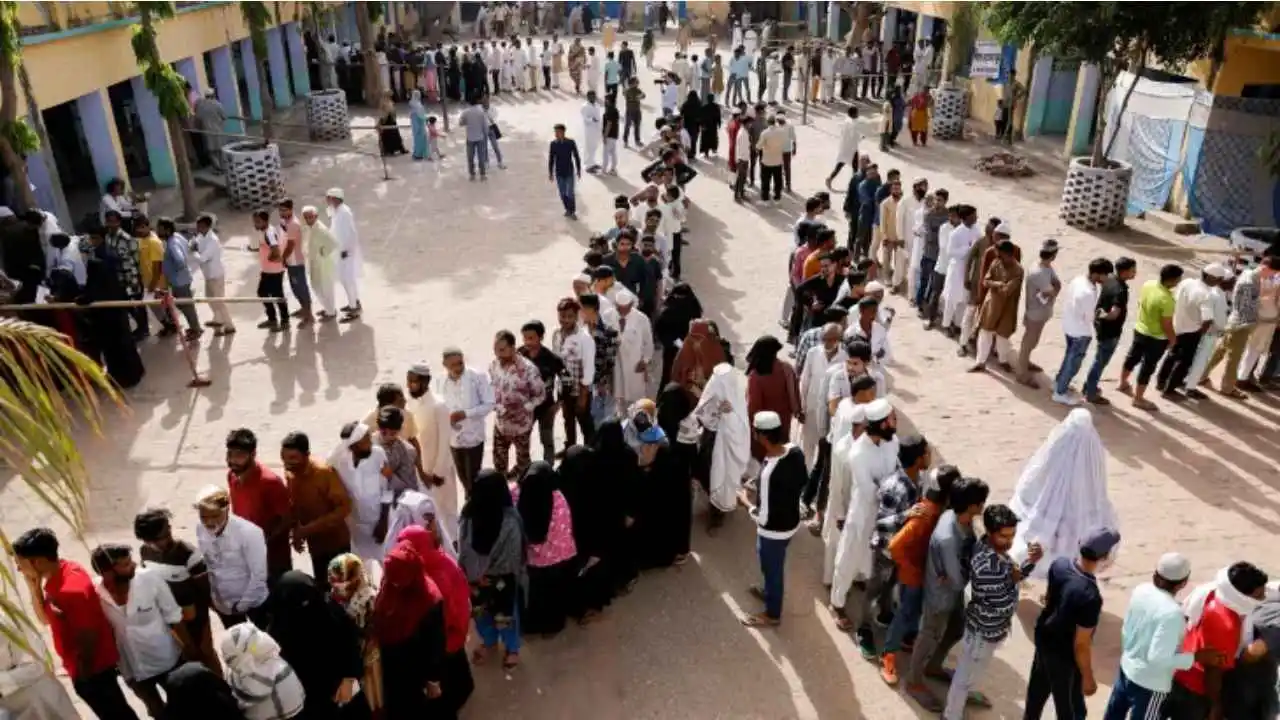
The Lok Sabha elections 2024 began today, marking the onset of the world’s largest electoral event. Voting ended in all 39 Lok Sabha constituencies in Tamil Nadu with a total voter turnout of 62.02%. State BJP chief and Coimbatore Lok Sabha constituency candidate K Annamalai said, they were getting complaints from a large number of voters that their names were missing from the voters’ list.
This incident happened in many places. Annamalai said they are demanding re-poll in places where the names of a large number of voters were missing.He said they had a doubt that there was some political interference because the names of a large number of BJP caders were missing from the voters list.
The voters in South Chennai showed lukewarm interest to participate in the election process and had a total voter turnout of 57.04% till 5pm. Although the overall percentage is poor, some areas like Thiruvanmiyur witnessed brisk polling from 7am onwards. Elderly, middle aged and young voters turned up and it was a family outing for many as they cast their vote.
Corporation volunteers assisted senior citizens with wheelchairs and guided them to their respective polling booths. The hot weather also had an impact on the polling as it reduced the voter turnout as many booths in the corporation school in MGR Nagar were seen deserted around noon. Senior citizens showed courage as they reached the polling booths in private vehicles to exercise their franchise.
Most of the polling booths had shamianas for voters so that they could wait in a queue. Some people even found refuge in the nearby buildings to save themselves from the scorching heat. The polling officials gave instructions to the voters to keep their phones switched off while they exercised their franchise. The security personnel at the polling booth also regulated traffic outside the polling booth in MGR Nagar.
2024 Lok Sabha Elections
Deserted by key supporters, the Kamal Nath story looks set to wind to an end in Chhindwara
Nath’s closest allies in his near 50-year reign—Deepak Saxena and Kamlesh Shah—have deserted him. His local team of corporators has also decided to jump ship leaving a gaping hole in Nath’s campaign trail.
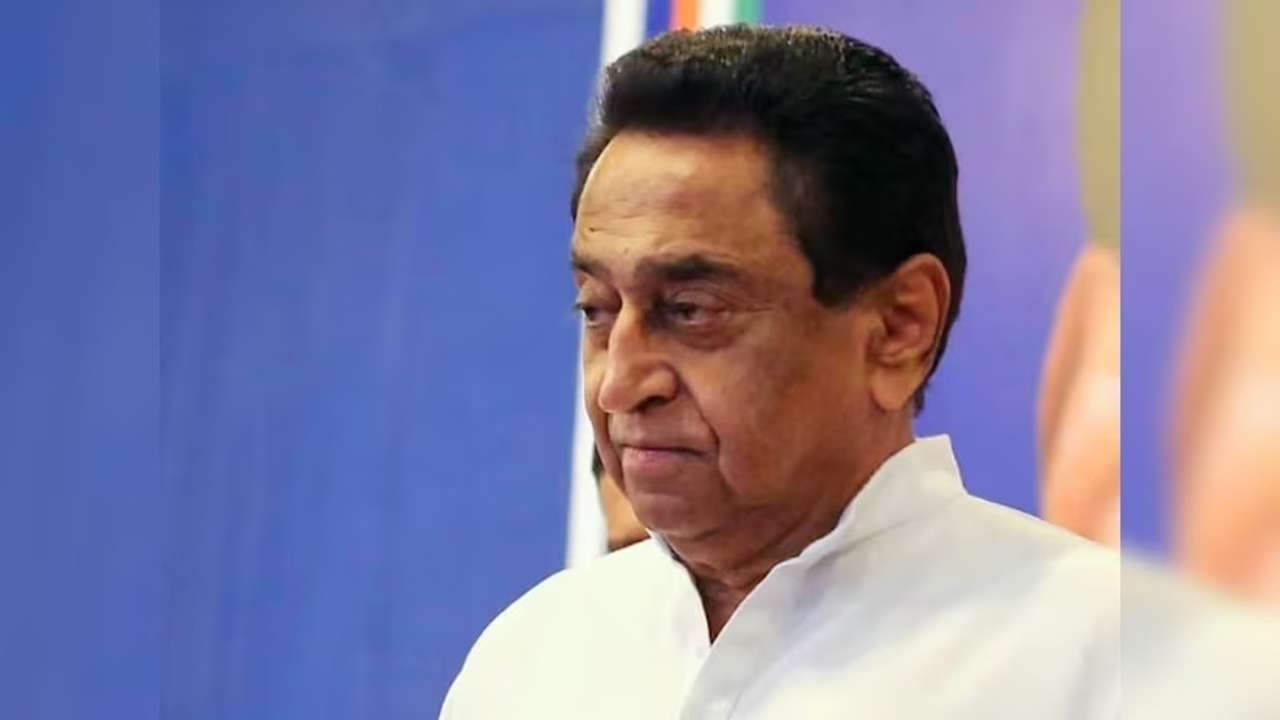
By Neeraj Mishra
The Congress has lost Chhindwara only once since Independence when the wily Sunderlal Patwa was sent there by Atal Bihari Vajpayee to test Kamal Nath’s hold on the constituency. Patwa won the 1997 by-election by a slim margin in the backdrop of Nath having forced his wife to first contest and later vacate the seat for him. Nath, however, returned to his winning ways the very next year and has won the seat nine times.
It seems possible that Chhindwara, the lone surviving Congress seat, will be lost again this time and may be forever. A day ahead of polling, the town was drowned in saffron. Not so much the effect of vigorous campaigning by Vivek Sahu of the BJP but the Ram Navami festival which brought out saffron flags on every rooftop. The effect is likely to last since the polling is today. At 77, Nath is unlikely to contest another election here and his son Nakul seems like a pale shadow of his father unable to even make a forceful speech. The days of running Chhindwara from Shikarpur kothi are gone.
Nath’s closest allies in his near 50-year reign—Deepak Saxena and Kamlesh Shah—have deserted him. His local team of corporators has also decided to jump ship leaving a gaping hole in Nath’s campaign trail. Nakul had won by a margin of 37,000 votes in 2019 and the biggest lead had come from Kamlesh’s Amarwada Assembly segment. With Saxena in control of Chhindwara and forced to show his strength in his new party, it is highly likely that Nakul will not be depending on these segments. Instead, the Congress campaign was focused on Pandhurna, Parasia and Chaurai.
Amit Shah was in the region a couple of days ago and warned all BJP workers—old and new—against lethargy. His message was clear, the BJP wants all 29 seats this time. Cabinet Minister Kailash Vijayvargiya is camped here and using all his political acumen for the desired results. One such tactic was to raid the Shikarpur Kothi of Kamal Nath for his assistant Miglani who handles almost everything for him. With Miglani temporarily neutralised, BJP is best placed to repeat its win in Chhindwara in 1997.
2024 Lok Sabha Elections
Lok Sabha Elections 2024: Nearly 40% voter turnout till 1pm
Chennai recorded an average voter turnout of 34% as of 1 pm on Friday. According data released by the Election Commission of India, Chennai (North) recorded 35%, Chennai (Central) recorded 32.3% and Chennai (South) recorded 34%.
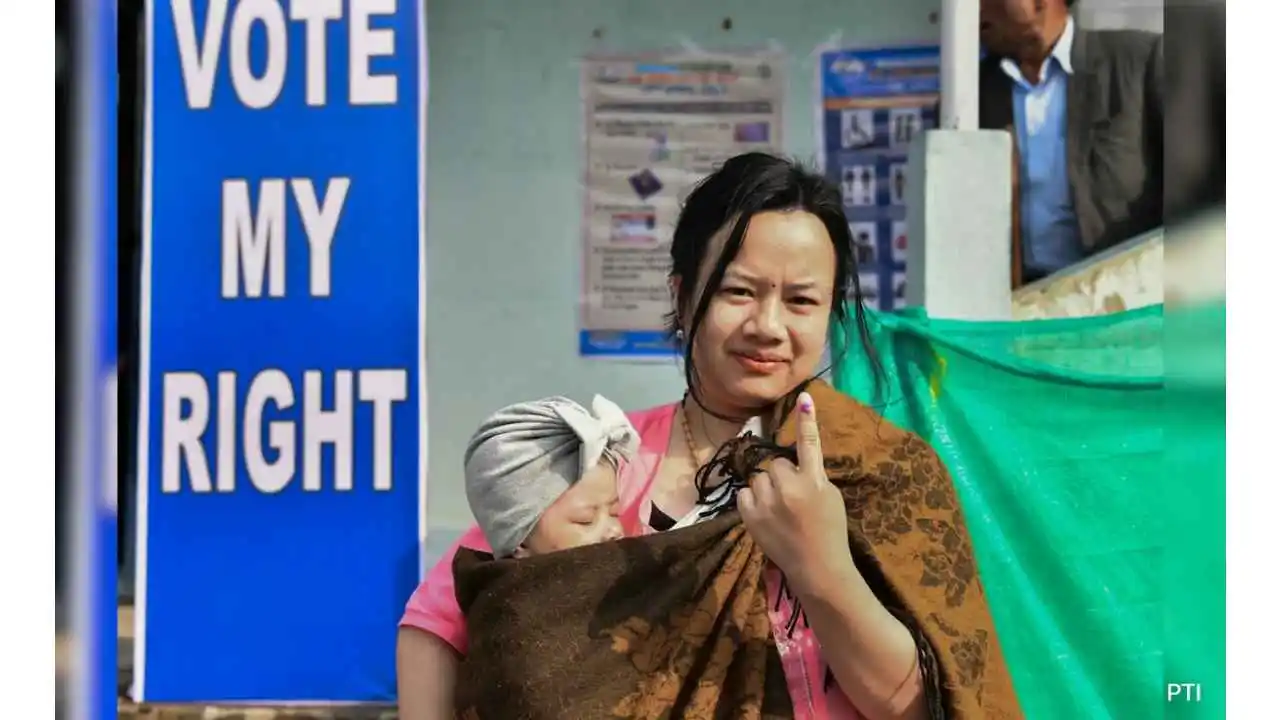
The first phase of voting for the 18th Lok Sabha elections started taking place in 21 states and Union territories on Friday. Nearly 40% voter turnout was recorded till 1pm across the states. Seats in Assam, Arunachal Pradesh, Chhattisgarh, Bihar, Maharashtra, Madhya Pradesh, Manipur, Mizoram, Meghalaya, Rajasthan, Nagaland, Tamil Nadu, Sikkim, Uttar Pradesh, Tripura, West Bengal, Uttarakhand, Jammu and Kashmir, Andaman and Nicobar Islands, Lakshadweep and Puducherry go to elections on Friday.
There has been a substantial increase in the voter turnout charts across the Northeast states, with Tripura leading at 53.04% until 1 pm, as per the data released by the Election Commission of India. Other northeast states like Manipur (46.92%) and Meghalaya (48.91%) are also witnessing high voter turnout. After Tripura, West Bengal is experiencing a high voter turnout of 50.96%.
Chennai recorded an average voter turnout of 34% as of 1 pm on Friday. According data released by the Election Commission of India, Chennai (North) recorded 35%, Chennai (Central) recorded 32.3% and Chennai (South) recorded 34%.
Over 33% voter turnout was recorded in the first 6 hours of voting on Friday in 12 parliamentary constituencies of Rajasthan. According to the Election Commission, voting started at 7 am amid tight security arrangements and 33.73 % voting took place till 1 pm. The highest voter turnout of 40.72 % was recorded in the Ganganagar Lok Sabha seat while Karauli-Dholpur saw the lowest turnout of 28.32 %. Jaipur recorded a poll percentage of 39.35 %.
Over 37 % voter turnout was recorded till 1 pm in the Lok Sabha election being held for five parliamentary constituencies in Uttarakhand on Friday. Elections began at 7 am and the five constituencies recorded an overall poll percentage of 37.33 % up to 1 pm. The Nainital-Udham Singh Nagar seat recorded the highest turnout of 40.46 %, followed by Haridwar with 39.41%, Pauri Garhwal with 36.60 %, Tehri Garhwal with 35.29 % and Almora with 32.29 %.
-
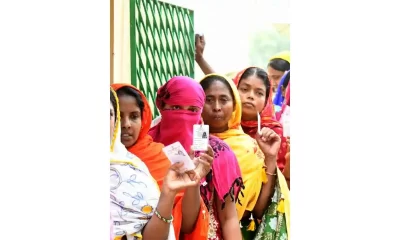
 2024 Lok Sabha Elections18 hours ago
2024 Lok Sabha Elections18 hours agoPrime Minister Narendra Modi urges citizens to vote in record numbers as voting for first phase of Lok Sabha elections begins on 102 seats across India
-
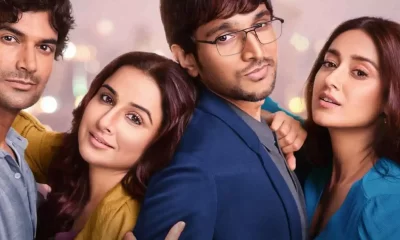
 Entertainment13 hours ago
Entertainment13 hours agoDo Aur Do Pyaar social media review: Social media users say Vidya Balan, Pratik Gandhi deliver standout performances in this adorable film
-
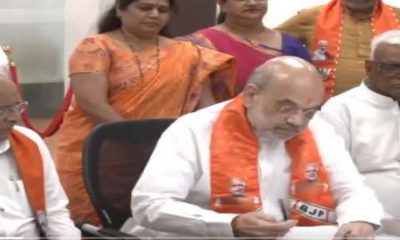
 2024 Lok Sabha Elections14 hours ago
2024 Lok Sabha Elections14 hours agoLok Sabha elections 2024: Amit Shah files nomination from Gandhinagar
-
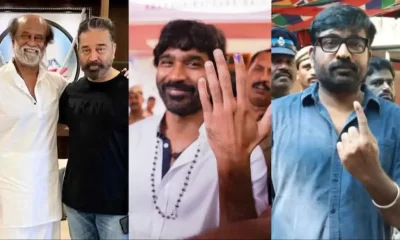
 2024 Lok Sabha Elections17 hours ago
2024 Lok Sabha Elections17 hours agoKamal Haasan, Rajinikanth, Vijay Sethupathi, Dhanush vote in Chennai
-

 Entertainment15 hours ago
Entertainment15 hours agoYami Gautam starrer Article 370 releases on Netflix today
-
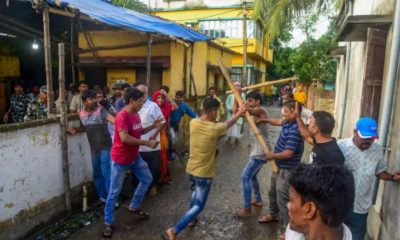
 2024 Lok Sabha Elections17 hours ago
2024 Lok Sabha Elections17 hours agoLok Sabha elections 2024: TMC, BJP workers clash in West Bengal’s Cooh Behar ahead of voting
-
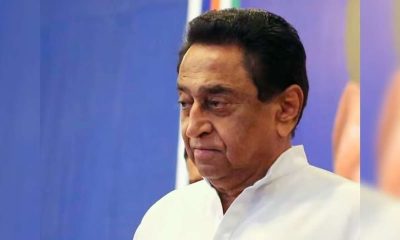
 2024 Lok Sabha Elections10 hours ago
2024 Lok Sabha Elections10 hours agoDeserted by key supporters, the Kamal Nath story looks set to wind to an end in Chhindwara
-

 2024 Lok Sabha Elections18 hours ago
2024 Lok Sabha Elections18 hours agoLok Sabha elections 2024: Google Doodle marks the start of polls with index finger voting symbol

